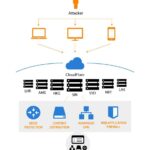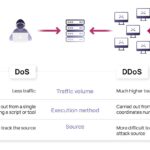In the ever-evolving landscape of container orchestration and deployment, Managed Kubernetes has emerged as a powerful tool for streamlining the process of running and managing containerized applications. But what exactly does “managed Kubernetes” entail, and how can it benefit your organization? Let’s dive into the world of Kubernetes, unpacking its complexities and exploring the advantages of opting for a managed solution.
Table of Contents
- Understanding Managed Kubernetes
- Key Features of Managed Kubernetes Platforms
- Benefits of Using Managed Kubernetes
- Best Practices for Implementing Managed Kubernetes
- Q&A
- Future Outlook
Understanding Managed Kubernetes
Managed Kubernetes is a cloud service that simplifies the process of deploying, managing, and scaling containerized applications using Kubernetes. With Managed Kubernetes, users can focus on developing their applications without worrying about the underlying infrastructure. This service is provided by cloud providers such as Google Cloud Platform, Amazon Web Services, and Microsoft Azure, who handle the maintenance and operation of the Kubernetes clusters.
One of the key benefits of Managed Kubernetes is that it abstracts away the complexity of setting up and maintaining a Kubernetes cluster. Users can easily deploy their applications using a web-based interface or command-line tools. Additionally, Managed Kubernetes services offer features such as automatic scaling, monitoring, and security, making it easier for businesses to manage their containerized workloads efficiently.
Key Features of Managed Kubernetes Platforms
Managed Kubernetes platforms offer several key features that make them an attractive option for organizations looking to streamline their container orchestration processes. One of the main advantages of utilizing a managed Kubernetes platform is the automatic scaling capabilities it provides. This means that the platform can dynamically adjust the number of containers running based on the workload, ensuring optimal performance and resource utilization.
Furthermore, managed Kubernetes platforms come with built-in monitoring and logging functionalities, allowing users to easily track the performance of their containers and troubleshoot any issues that may arise. Additionally, these platforms often include features such as automated updates, security patches, and backup capabilities, reducing the burden on IT teams and ensuring that the infrastructure remains secure and up-to-date. managed Kubernetes platforms offer a comprehensive solution for organizations seeking a reliable and efficient container orchestration solution.
Benefits of Using Managed Kubernetes
Using Managed Kubernetes can offer a range of benefits for businesses looking to streamline their operations and improve efficiency. One of the main advantages of Managed Kubernetes is its ability to automate much of the manual work involved in deploying, scaling, and managing containerized applications. This automation can save time and reduce the risk of human error, allowing teams to focus on more strategic tasks.
Managed Kubernetes also provides businesses with greater flexibility and scalability, as it enables them to quickly and easily scale their infrastructure to meet changing demand. This can help improve resource utilization and reduce costs, as businesses only pay for the resources they actually use. Additionally, Managed Kubernetes offers built-in security features that help protect applications and data, making it a secure choice for businesses looking to protect their sensitive information.
Best Practices for Implementing Managed Kubernetes
When it comes to implementing Managed Kubernetes, there are a few best practices that can help ensure a smooth and successful deployment. One important practice is to carefully plan and design the architecture of your Kubernetes clusters. This includes considering factors such as scalability, availability, and security. Additionally, it is essential to regularly monitor and optimize your clusters to ensure optimal performance.
Another best practice is to automate as much of the management process as possible, using tools such as Terraform or Ansible. This can help reduce human error and streamline the deployment and maintenance of your Kubernetes clusters. Additionally, it is important to stay informed about the latest updates and best practices in the Kubernetes community to ensure that you are taking advantage of all the latest features and enhancements.
Q&A
Q: What is Managed Kubernetes?
A: Managed Kubernetes is a cloud-based service that simplifies the deployment, scaling, and management of containerized applications using Kubernetes.
Q: How does Managed Kubernetes differ from self-managed Kubernetes?
A: Managed Kubernetes takes care of the underlying infrastructure, automated processes, and maintenance tasks, allowing users to focus on developing and deploying applications without the hassle of managing the Kubernetes clusters.
Q: What are the benefits of using Managed Kubernetes?
A: Managed Kubernetes offers benefits such as automated scaling, seamless upgrades, built-in security features, high availability, and reduced operational overhead for organizations looking to streamline their container orchestration processes.
Q: Which cloud providers offer Managed Kubernetes services?
A: Major cloud providers such as Google Cloud Platform (GCP) with Google Kubernetes Engine (GKE), Microsoft Azure with Azure Kubernetes Service (AKS), and Amazon Web Services (AWS) with Amazon Elastic Kubernetes Service (EKS) all offer Managed Kubernetes services.
Q: How can organizations leverage Managed Kubernetes to improve their application development processes?
A: By using Managed Kubernetes, organizations can accelerate their application development cycles, achieve greater scalability, increase operational efficiency, and ensure consistent deployment practices across their infrastructure.
Q: Is Managed Kubernetes suitable for all types of applications?
A: Managed Kubernetes is well-suited for a wide range of applications, including web services, microservices, IoT solutions, and data processing pipelines, making it a versatile platform for modern cloud-native development.
Future Outlook
Managed Kubernetes offers a seamless way to deploy, scale, and manage containerized applications without the complexity of traditional Kubernetes setups. With the ability to focus on development instead of infrastructure management, businesses can innovate faster and stay ahead of the competition. Whether you’re a small startup or a large enterprise, harnessing the power of Managed Kubernetes can transform the way you build and deploy your applications. Embrace this cutting-edge technology and unlock a world of opportunities for your organization. Say goodbye to manual configurations and hello to a more streamlined, efficient, and scalable application management solution with Managed Kubernetes.









